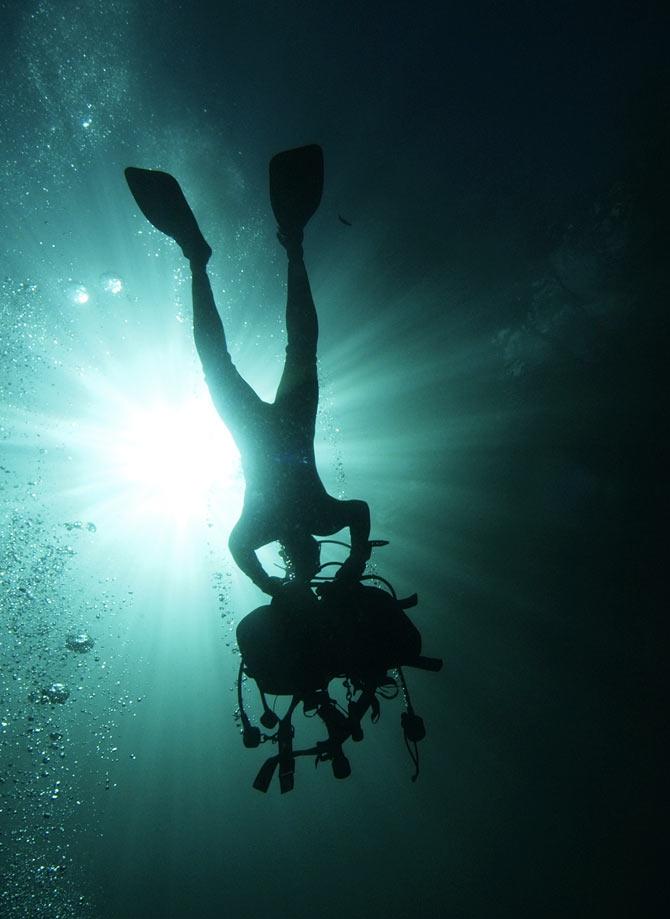
Becoming a scuba diving instructor is the dream job of most water babies. Neerja Deodhar helps you dive into this career, with inputs from Akshay Tanna who left behind an IIT degree to become a scuba diving instructor
Scuba diving is slowly forming its own niche when it comes to water sports in India.
Especially after movies like Zindagi Na Milegi Dobara and Blue, tourists have discovered that there is no better way to see the visual wonders that the ocean has to offer than scuba diving.
As Carlos Eyles says, “Scuba diving is very much a black and white world in terms of the laws and rules one must abide by. It comes down to clear-cut physics.”
Just as diving is gaining attention, so is training to be a scuba instructor.
Courtesy:YouthIncMag.com

Please click NEXT to continue reading...
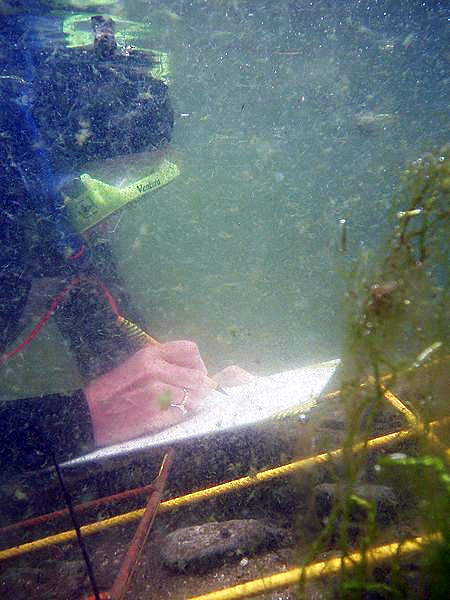
Skills and Qualifications
Ideally, an instructor must have an innate love and respect for the ocean; s/he must be totally comfortable in the water.
He must be a responsible person because he is taking people’s lives into his hands and he should be able to think on his feet in case there is any emergency.
“An instructor must also be patient with his students because essentially, he’s a teacher and a lot of learners may have aqua phobia”, says Akshay Tanna.
He should have a sound understanding of the sea and its flora and fauna, but that can be picked up while you’re on the job too.
More importantly, someone who aspires to be a diver must have a fit body.
Institutes
Some well-known institutes to train at are Barefoot Scuba and Dive India in Andaman.
Dive schools like Andaman Bubbles and Barracuda Diving offer master courses but only.
A few like PADI can certify you as a professional diver.
Dive schools in Mumbai, Pune and Bangalore take their students to destinations all over the world.
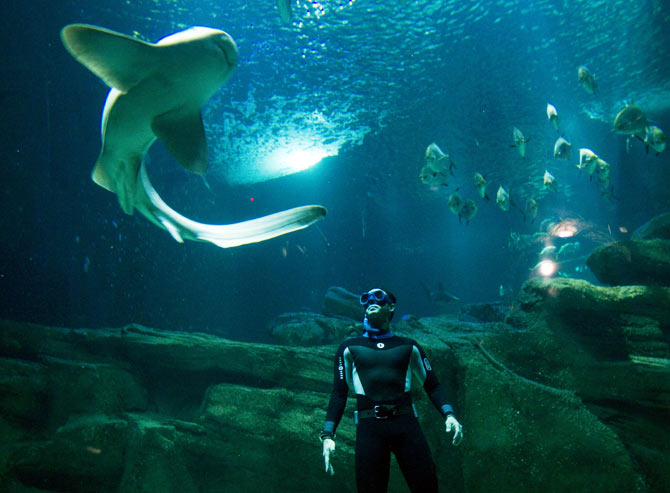
Remuneration
A beginner dive master can earn up to Rs 15,000 a month, a beginner instructor earns about Rs 30,000 and an experienced instructor can earn up to Rs 45,000 a month.
Sometimes the institute you’re working for might cover your daily expenses and your food and stay may be paid for.
Work conditions differ depending on which dive school you work for and what your qualifications are.
However, young diving instructors are realising the potential of freelancing and entrepreneurship where they decide what their pay will be like.
Perks and Challenges
The ocean is unpredictable and weather conditions are constantly changing.
Sometimes divers have to swim through strong currents.
Another challenge is to ease students and tourists, who are initially scared, into the water.
“Sometimes work scenarios could get scary. It made me realise that in a job like mine, safety is paramount,” warns Tanna.
The perks of being a diving instructor aren’t the typical company- car-and-driver, or monthly raises, but you do get to live at exotic places.
However, your job will take your around the world and you will have the opportunity of meeting a lot of interesting people belonging to different cultures.
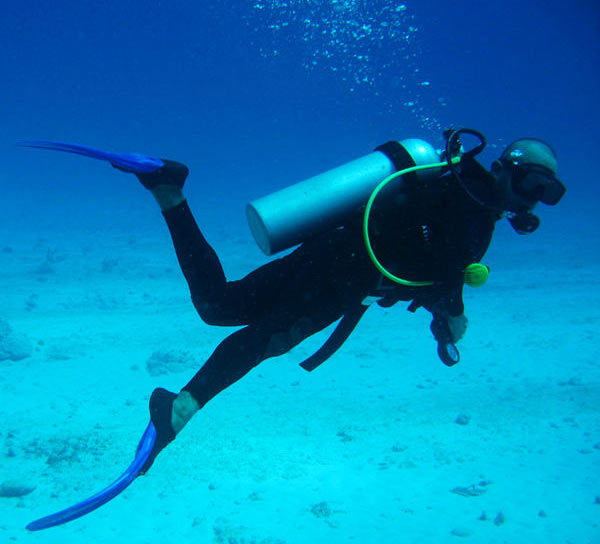
In this dog-eat-dog world where everyone is striving to get a better salary, a better job, better employment benefits, a scuba diver’s life may seem very laid-back and easy.
The general perception of the Indian parent and society of a 'real job' is one which involves sitting at a desk behind a computer for hours at length.
Scuba diving breaks all these career stereotypes.
It promotes a healthy lifestyle and a pollution-free work environment.
The interest in water sports and snorkeling is still developing in our country, as is the need for marine conservation.
People understand the seriousness of this career now.
Tanna’s advice to people considering this profession is, “Making the initial decision to take it up as a means to earn a livelihood, especially if you are switching jobs, is usually the toughest. But nothing beats the satisfaction that you gain from doing what you love and earning money while you're at it.”
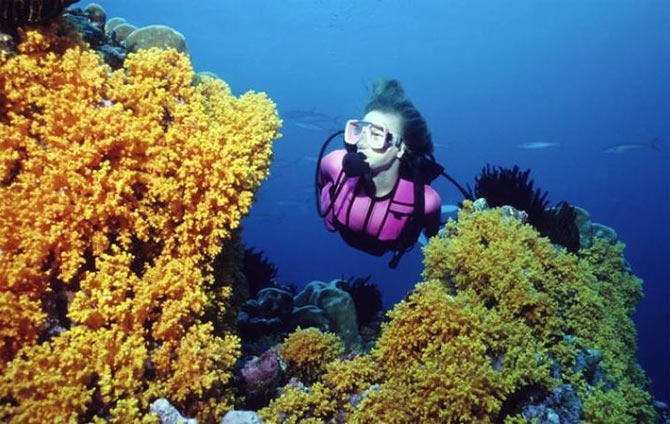
To multiply your prospects and avail better remuneration, ensure you complete some of the following these courses:
Open Water
The most popular diver programme worldwide which allows you the freedom to dive with a buddy, independent of a professional.
You will learn about scuba fundamentals, equipment and diving techniques, then practice your diving skills in the pool before actually going into the sea.
You must be able to float /swim for ten minutes and complete either a 100-meter continuous swim or 300-meter continuous swim with snorkel and fins.
Advanced Water
This course offers the opportunity to experience a wide range of activities and inter-related skills to enhance your interests and capabilities as a diver.
Rescue Diver
This course enables you to build the confidence, knowledge and skills required to anticipate, prevent and manage potential dive-related accidents in the unlikely event that a problem should arise.
From assisting a tired diver to handling realistic emergency scenarios, locating and resuscitating an unconscious diver to first aid and oxygen administration, the safety and well-being of others is your goal.
Dive Master
You will work with divers, handle boats, tie knots, and guide certified divers.
This course will prepare you for a professional role within the industry.
You will complete exercises such as mapping, underwater problem solving and managing a dive accident scenario.
Instructor
After this course, you become a master of instructorlevel dive theory, knowledge development teaching and confined water teaching.